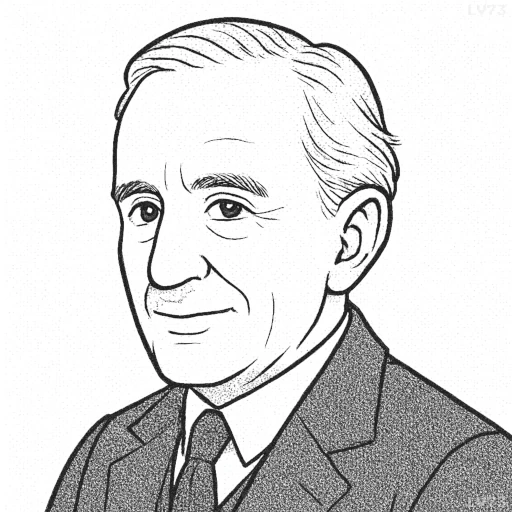“Myth and fairy-story must, as all art, reflect and contain in solution elements of moral and religious truth (or error), but not explicit, not in the known form of the primary ‘real’ world.”

- January 3, 1892 – September 2, 1973
- Born in the Orange Free State (British)
- Author, linguist
table of contents
Quote
“Myth and fairy-story must, as all art, reflect and contain in solution elements of moral and religious truth (or error), but not explicit, not in the known form of the primary ‘real’ world.”
Explanation
This quote expresses Tolkien’s belief that myths and fairy tales, like all art, should contain moral and religious truths, but these truths should be conveyed in an indirect, symbolic, or fantastical manner rather than in the explicit, realistic form of the everyday world. Myths, for Tolkien, were a way of exploring deeper human experiences, such as good and evil, sacrifice, and redemption, but without being bound by the limitations or realities of the real world. By using fantastical elements, stories can touch on universal truths while still maintaining the imaginative and transcendent nature that makes them engaging and meaningful.
Tolkien’s own works, particularly The Lord of the Rings, reflect this idea. The moral and religious themes in his stories are woven into the fabric of his world-building and characters. However, they are not preachy or overtly didactic; rather, they are explored through actions, choices, and consequences within a secondary world that is separate from our own. For example, themes of self-sacrifice, temptation, and the nature of evil are central to the story, but they are explored through the actions of characters like Frodo, Aragorn, and Gollum, rather than through direct moral lessons or religious discourse.
In a modern context, this quote suggests that art and storytelling are valuable not only for their entertainment but also for the ways they can convey deeper truths that resonate with the human experience. These truths, whether they pertain to morality, spirituality, or the complexity of life, are often best expressed symbolically or metaphorically. For example, science fiction or fantasy genres today often tackle real-world issues—such as environmental destruction or social inequality—but do so through alternate realities or speculative scenarios that allow for exploration without being confined to the immediate concerns of the “real” world. This method of conveying moral or religious truths through fictional means allows for a more profound exploration of ideas, free from the constraints of direct argument or ideological conflict.
Would you like to share your impressions or related stories about this quote in the comments section?





